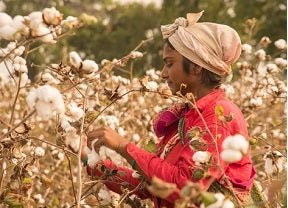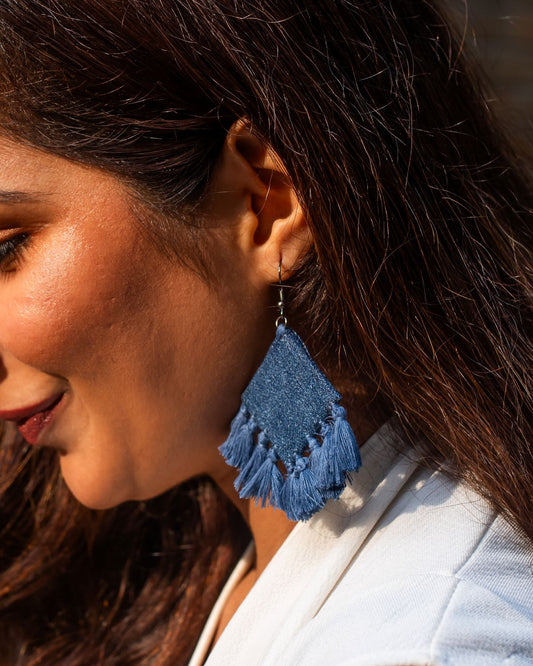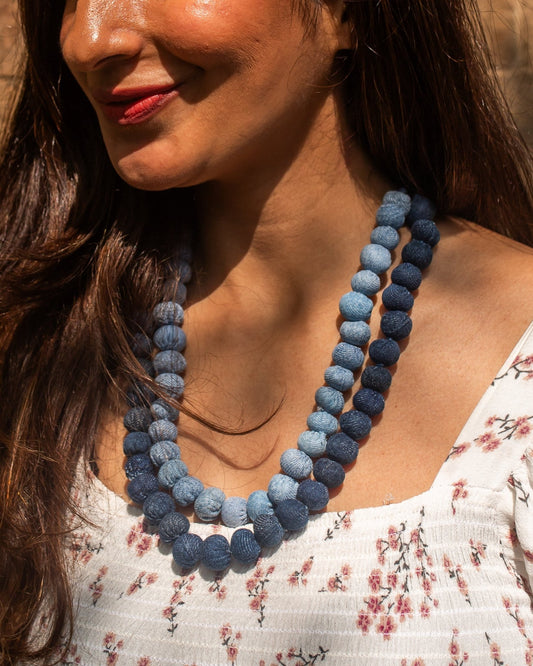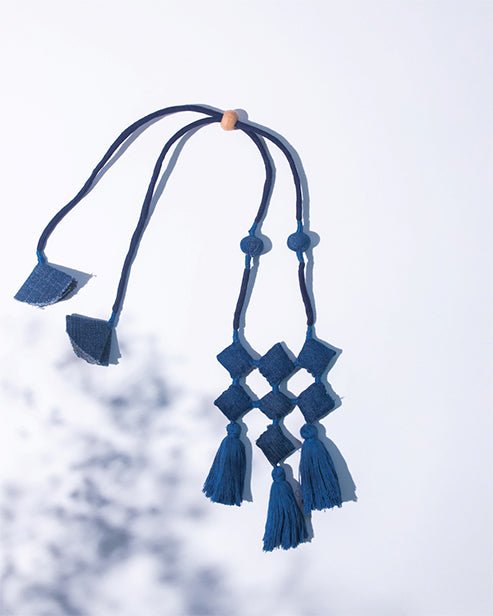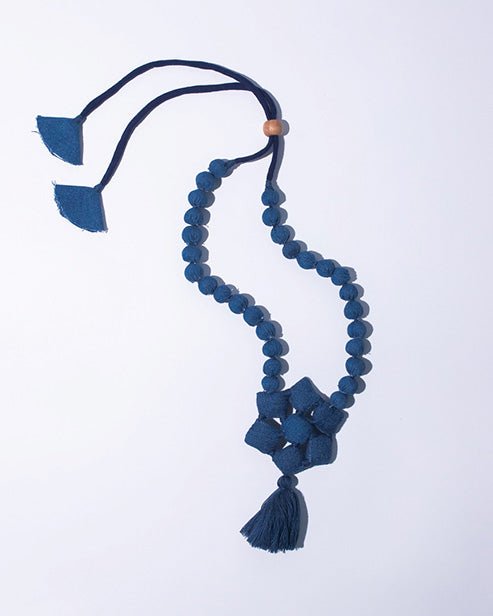While it may be the comfort fabric of choice for many, cotton has gained a bad reputation in the fashion world for being highly unsustainable. Heavily dependent on natural resources like water, it is often labelled an eco-burden. Having evolved from this very fabric, denim too has been under the sustainability scanner and deemed harmful to the environment.
Another factor that has conscious consumers vary of denim, is the way the fabric is processed. In most cases, denim is treated with chemicals and synthetic dyes before it makes its way to your closet. Click here to learn more about how the manufacture of some of your favourite denim styles might be costing the planet. So if all this while, denim was your go-to style, should you be compelled to quit it? We should hope not, because as the wise say, necessity is the mother of all invention- And with sustainability becoming the new-age necessity, the world of denim has found its way with eco-friendly alternatives!
Let’s take a look at what these are and the factors that make them planet-safe:
-
Organic Denim: As the name suggests, organic denim is made of organic cotton and treated naturally throughout. It is not cultivated with any chemical interference, making it much easier on our planet and wastewater streams. It also uses much less water for production. Today, certain global brands also use GOTS-certified cotton to make their jeans, providing an added certification of trust for their conscious consumers. In some contexts, organic denim is also referred to as ‘eco-responsible’ denim owing to the ethical ways of production. Also created in combination with Tencel (another circular, sustainable wonder), organic denim jeans are biodegradable too. Usually, organic denim is also coloured using natural dyes, making it a completely vegan product as well! This innovation can reduce landfill pressures by a great deal, especially if it becomes a common practice amongst denim manufacturers the world over.
-
Recycled Denim: One of the best ways to extend the life-cycle of denim is to recycle the existing fabric instead of creating new stock. Many popular fashion houses around the world are now transitioning to 100% recycled denim for their collections. Some are even opting to buy deadstock fabric (leftovers from production) to create new denim pieces.
-
Circular Denim: Circular denim simply means jeans (or other denim apparel) that have been made by reusing all raw materials used in the process. A single pair of jeans uses around 3,700+ litres of water in its production lifecycle. Given the amount of denim created and sold in the fashion industry, this is a very high cost to our natural resources. Denim that’s made using circular production methods, ensures responsible use of these resources and reduces the waste output significantly at the time of manufacturing. Brands that are adopting a circular model also encourage customers to return the denim they no longer plan on wearing, so that instead of making its way to a landfill, it enters back into the production system! Sounds like a great way to operate, isn’t it?!
4. Hemp Denim:
Following a similar production method as biodegradable or organic denim, jeans made of hemp fibre are also planet-friendly alternatives. Being an organic and easy to cultivate fibre, some luxury brands are slowly switching to hemp denim production entirely.
Hemp also uses much less water as compared to cotton, and it's an all-weather fabric, making it ideal for sustainable denim production. A lot of organic denim brands also tend to mix organic cotton, hemp and Tencel to make eco-friendly jeans!

5. ‘Plastic-Free’ Stretch Denim: Now you might wonder what denim has to do with plastic. Well, your stretch jeans certainly do! Made by combining cotton with polyester and spandex, an average pair of stretch jeans, though comfortable, is a contributor to plastic waste. They are also known to add microplastics to the wastewater streams! Now, several conscious brands have moved on to create stretch jeans made of natural rubber fibre. These kinds of eco-friendly stretch jeans are mostly plant-based from end to end and hence naturally biodegradable and more sustainable. 6. Re-Created Denim: Somewhat similar to upcycled or recycled denim, re-created or re-made denim is usually when a brand collects old and vintage jeans and simply refurbishes them to create a new garment. Today, a few international brands and luxury designers are doing this with excellent creativity! By adding a touch of lace, patchwork, embroidery or other flourishes to a vintage pair of jeans, they’re now able to create beautiful high-fashion collections!
So as you see, be it on the red carpet or in support of the sustainability movement, fashion always finds a way to stay relevant!
Besides adopting eco-friendly denim, there are also a few good ways in which you can make sustainable use of the ‘unsustainable’ denim that’s already lying in your closet! Here are a few good tips to get you going:
> Maintain your denim to ensure it lasts longer than usual. If you’d like to know some practical tips to help you with this, click here and also find out about the evolution of denim.
> Reuse every piece as much as you can. A good pair of denim jeans or shorts can be worn in multiple different ways and styled for various occasions. So make the most of your purchases by repeating them often. > Donate what you don’t use. Rather than throwing your jeans away or letting the unworn pieces lie in the cupboard, the best way to let go of old jeans is to pass them on. > Avoid buying denim for short-term wear. For example, if you’re shopping for your maternity closet, you will likely undergo size changes over the months. Shopping for denim jeans or skirts during this phase may go unworn after you’ve had your baby. So one good option is to invest in those denim garments that will have high repeat value for you. If the occasion to style with denim still arises, your next best bet could be to borrow. > Get creative and upcycle your older pieces to create something new. You can even take help from your local masterji to convert an old pair of denim jeans or jacket into a new garment, laptop sleeve, etc. The sky is the limit if you decide to DIY! > Offer your old denim for recycling. With a little bit of research amongst local environmental groups, denim brands and the like, you can find out where you might give your older jeans for recycling and prevent them from ending up in landfills! You can even turn this into a community effort by offering to collect old jeans for recycling from your friends and peers!
Other than the variety of denim used for manufacture, sustainable and ethical denim is also characterised by other crucial features. When you shop for a pair of planet-friendly jeans, also do a bit of research on where these clothes were created, do they have any noteworthy certifications, does the brand follow ethics of fair wages and more. Also, check with your brand and learn about their return or recycling policies, if any.
If you’d like to explore sustainable denim accessories for your eco-friendly closet, check out our range of 100% upcycled denim products here!
---------------------------------------------------------------------------------------------------------------- Sources:

